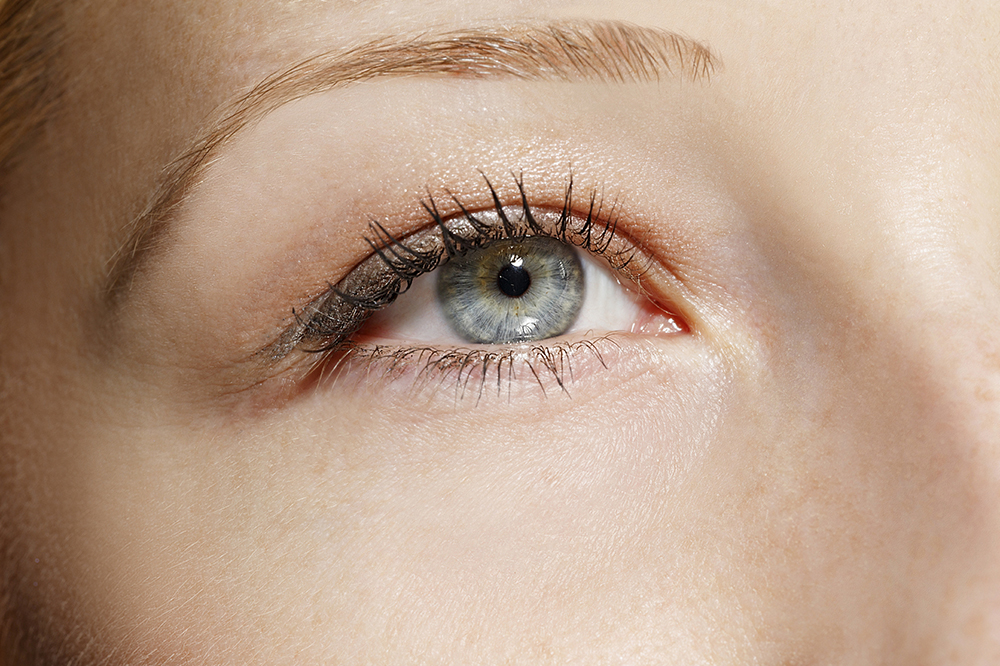Mind over matter?
Award-winning science journalist Jo Marchant navigates the compelling argument for applying mind over matter to help us manage our health

Have you ever felt a surge of adrenaline after being narrowly missed by a car when crossing the road? Felt aroused when hearing your lover’s voice on the phone? Retched at the sight of maggots in rubbish bins? If so, then you’ve experienced how the workings of your mind can dramatically affect your physical body, as information from our mental state constantly helps us adapt to our surroundings.
When it comes to health, however, the question of whether the mind influences the body is much more controversial. Alternative therapists and self-help gurus insist that curing ailments from paralysis to cancer is simply a matter of cultivating the right attitude, while most conventional scientists and doctors dismiss the idea of ‘healing thoughts’ as fantasy. So where does that leave us?
The mind certainly isn’t a miracle cure all by itself, but the science isn’t all on the sceptics’ side. In fact, there’s growing evidence that in many situations, our thoughts, emotions and beliefs are vital to our physical wellbeing and health. By harnessing our minds, we can ease symptoms such as pain, calm our immune systems, and reduce our lifelong risk of disease.
Take the placebo effect: the phenomenon whereby people feel better after receiving medical care, even if the treatment is fake. It is often dismissed as an illusion; if someone improves with a dummy pill, presumably they would have recovered anyway, or they think they’re well when really, they’re not.
Scientists are finding, however, that placebos can cause biological changes with significant therapeutic effects. ‘There exists not a single placebo effect, but many,’ explains neuroscientist Fabrizio Benedetti, who studies placebo responses at the University of Turin in Italy. Taking a fake painkiller triggers the release in the brain of natural pain-relieving chemicals called endorphins (which opium-based painkillers are designed to mimic). For patients with Parkinson’s disease, placebos cause a flood of the neurotransmitter dopamine, just as when they take their real drug.
Inner pharmacy
In other words, says Luana Colloca, who researches placebo effects at the US National Institute of Mental Health in Maryland, our brains contain a ‘beautiful self-healing pharmacy’. We can trigger these pathways using drugs, but psychological factors – our belief in a treatment, knowledge that we are being cared for, or expectation that we are about to feel better – can help access them too.
One patient who has benefited is Bonnie Anderson, a 75-year-old golf enthusiast from Minnesota. She fractured her spine in 2005, after slipping on wet kitchen tiles, and was left in constant pain. ‘I couldn’t sleep at night,’ she says. ‘And I couldn’t play golf anymore. I’d have to sit at home with a heating pad.’ Then Bonnie took part in a trial of a promising surgical procedure called vertebroplasty, in which doctors inject cement into the fractured bone. ‘It was wonderful,’ she says. ‘It really took care of the pain.’ She found out only later that the surgery she received was fake.
This ‘inner pharmacy’ has limits: placebos won’t banish cancer or cure inherited conditions like diabetes or cystic fibrosis. But when it comes to common symptoms such as pain and gut problems, scientists are realising that the brain plays a role and this is leading to discoveries that promise to reduce or, sometimes, replace our need for drugs.
Being immersed in a virtual reality programme called SnowWorld significantly reduces pain in patients with severe burns, for example, while cognitive behavioural therapy can help patients with chronic fatigue syndrome. Meanwhile, gut-directed hypnotherapy teaches patients with irritable bowel syndrome (IBS) to regain control over their intestines. A course of such hypnotherapy reduces sensitivity to pain and, while hypnotised, patients can influence their rate of gut contractions – something not generally thought to be under conscious control.
The mind cure
The therapy has transformed the life of 48-year-old Nicole. Fourteen years ago, Nicole gave birth to a disabled son, and shortly afterwards, his father left with the couple’s money. She gave up her job as an air stewardess, moved into a council house and saw her son through several operations while studying to be a dental nurse. She rose at 5am to study while he slept, before taking him to nursery and going to work.
But the stress caught up with her. She felt sick and in constant pain, as if razor blades were being dragged through her body. She suffered from vomiting and diarrhoea and became hugely bloated. Her consultant prescribed more and more drugs, until she didn’t know which one did what. Eventually, she was diagnosed with IBS.
Nicole was sceptical about hypnotherapy at first, but after a few weeks she said, ‘I’ve no bloating, I’m not taking any pain relief. It’s a miracle.’ She’s not alone. In trials, this therapy helps 70-80 per cent of IBS patients for whom all other treatments have failed. Symptoms such as headaches and fatigue are eased as well as gut-related ones, and after hypnotherapy patients make fewer visits to doctors and consultants – not just for IBS, but for other health complaints, too.
The impact of stress
The influence of the mind goes beyond altering how we feel, however. It can also change underlying physiology, and this can be vitally important for long-term health. One example is the fight-or-flight response. Fear triggers dramatic physiological changes: our heart rate and breathing speed up, while fat and glucose are released into the bloodstream. This response evolved to help us survive in emergencies but if we feel constantly stressed it never switches off, and this damages our bodies. ‘Chronic stress gets under the skin,’ explains Professor Elissa Epel, a stress researcher at the University of California, San Francisco.
Raised blood pressure can cause problems from clogged arteries to heart attacks. High blood sugar levels increase the risk of obesity and diabetes. Stress also triggers inflammation, the body’s first line of defence against infection and injury, and this too is damaging long-term. Wounds heal more slowly – researchers have seen this in women caring for an ill relative, dental students facing exams, and married couples when they fight. We’re more susceptible to autoimmune disease, from eczema to multiple sclerosis (MS). And over time, inflammation eats away at healthy tissues such as bones, joints and muscles.
In Europe and the US, around a third of us have inflammation levels that are dangerously high, and scientists are realising that this causes or contributes to conditions including diabetes, heart disease, arthritis, osteoporosis and dementia – all of the chronic diseases that plague us as we age.
Mindfulness training
Researchers hope, then, that reducing stress won’t just make us happier, it could transform physical health, too. One approach is mindfulness. The aim [as discussed in depth in our Dossier this issue; see page 61] is to focus on the present moment: to become aware of negative thoughts and realise that they don’t represent reality. ‘You can feel pretty stressed out,’ says Epel, ‘but if you realise what you’re experiencing is just thoughts and feelings, that they’re fleeting and they’re not you, the negative feelings drift by faster.’
Hundreds of trials show that mindfulness training reduces chronic pain and anxiety, can cut relapse risk in people who suffer from depression, reduces stress and improves quality of life in everyone from cancer survivors to healthy volunteers.
There’s also evidence that it benefits the immune system. One trial found that the autoimmune skin disease psoriasis cleared more quickly when conventional treatments were combined with mindfulness training. Other studies suggest it boosts the response to the flu vaccine and makes us less susceptible to infection, from reducing the number of colds people suffer to slowing the progression of HIV. Trials confirm that mindfulness improves quality of life and mental health in MS patients as well as reducing depression, anxiety and fatigue. (None has looked directly at whether it slows progression of MS, though there’s strong evidence that psychological stress does exacerbate the disease.)
Try this at home…
If you want to benefit from all this research, there are several key principles to bear in mind. First, when you receive medical care, don’t take your pills passively. Your attitude matters, so engage with your treatment and visualise how you hope to improve. ‘Expectation is extremely strong in pain,’ says Colloca. ‘If I expect that my pain is going to decrease, I will feel better, even if I took a sweet instead of an ibuprofen tablet.’
If you’re not feeling positive about treatment, consider how to overcome your reluctance, adds UCLA neuroscientist Andrew Leuchter, who studies placebo responses in depression, or find another approach you feel more optimistic about. It’s also important to find a doctor or therapist that you like and trust. ‘You want to be comfortable and satisfied with the physician you choose,’ says Colloca, ‘and to have an appreciation of his or her skills.’
In daily life, meanwhile, it’s crucial to have a sense of purpose. Religious people have longer-than-average life expectancy, probably partly because their faith is comforting during stressful times. However, any kind of higher meaning – caring about politics, art or charity work – makes us less concerned about our own small, personal upsets, and this may feed through into our physical and mental health. For example, one study* found that inflammation-related genes were less active in people who favoured altruistic pursuits compared to those who prioritised hollow consumption.
If mindfulness doesn’t appeal, try connecting to others. People who have warm relationships, rich social lives, and who feel like they belong to a group, ‘don’t get as sick, and they live longer,’ says Charles Raison, psychiatry professor and mind-body medicine researcher at the University of Wisconsin-Madison. ‘It’s probably the single most powerful behavioural finding in the world.’ Volunteer work improves physical health and boosts cognitive function in the elderly, for example, while compassion meditation – which involves cultivating gratitude and affection for those around you – has been shown to reduce inflammation. Even reading this feature could be a step in the right direction, as simply being aware of the role of the brain can be crucial in freeing us from inflammation-causing negativity and stressful lifestyle patterns.
Mindblowing, perhaps, but given that we’re living in an era of such pioneering science, and now have evidence to show just how much control we potentially have over our own health destiny, the worst thing we can do to ourselves, and our remarkable minds, is to ignore it.
CURE: A Journey into the Science of Mind over Body, by Jo Marchant (Canongate, £16.99) is out now
Photograph: iStock









